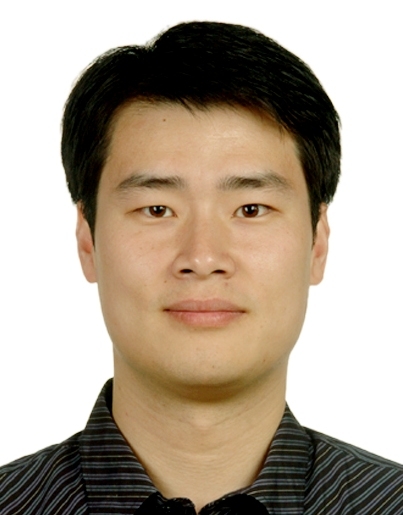

Dr Lei Kang
Biography
Dr Lei Kang leads research into flow measurement and non-destructive testing & evaluation (NDT&E) using ultrasonic technology within the Systems Engineering Research Group (SERG). He has worked in the development of ultrasonic transducers, ultrasonic instruments, ultrasonic measurements and ultrasonic detection techniques (especially for flow measurement and NDT&E) for 18 years. He is an expert in ultrasonic technology and a member of IET. He is currently leading projects concerning unidirectional ultrasonic technology for non-destructive evaluation of plates and pipelines and development of ultrasonic transducers for flow measurements operating at elevated pressures and/or temperatures.
Lei received his PhD degree from the School of Electrical Engineering and Automation at the Harbin Institute of Technology in 2010 in China. He was employed as a Lecturer in 2011 and then an Associate Professor in the same School in 2015, leading the Ultrasonic Research Group as a Group Leader. During this period, Lei has led or participated in 6 research projects funded by various Chinese organisations.
In 2016, Lei moved to the UK and was employed as a Marie Curie Research Fellow for the EU funded project “Steerable air-coupled ultrasonic technology for flow measurement and NDE applications” (Ref. 612118) led by Prof. Steve Dixon in the Department of Physics at the University of Warwick (UoW). From 2017 to 2020, Lei was employed as a Research Fellow for the EPSRC funded project “High frequency flexural ultrasonic transducers” (EP/N025393/1) in the same Department at UoW. In 2020, Lei became a Senior Lecturer at UoP.
As an expert on ultrasonic technology, Lei has published over 80 research papers (35 peer-reviewed papers in international journals, 18 peer-reviewed papers in Chinese journals and 37 papers in international conferences) and his research has been acknowledged both in China and in the UK (e.g.: the second prize of “the National Award for Science and Technology Progress” granted by the State Council of China in 2014 and the third prize in the RCNDE Early-Career Research Flash Talk Competition by the UK Research Centre in NDE in 2017).
Some relevant research completed by Dr Lei Kang include:
Design, fabrication and characterisation of ultrasonic transducers including unidirectional shear-horizontal-wave electromagnetic acoustic transducers (EMATs), unidirectional Lamb-wave and shear-vertical-wave EMATs, omni-directional Lamb-wave EMATs, high efficiency Lamb-wave, Rayleigh-wave and bulk-wave EMATs, high-pressure, high-temperature and high-frequency flexural ultrasonic transducers (FUTs), electrodynamic FUTs, two-dimensional flexural ultrasonic phased array transducers and wideband electromagnetic dynamic acoustic transducers (WEMDATs).
Ultrasonic measurements of physical quantities essential in industrial applications, including measurements of wall thickness of plates and pipes using unidirectional ultrasonic Lamb waves and shear-horizontal bulk waves, measurements of flow rates based on a series of innovations which include developing two-dimensional ultrasonic array transducers, adopting spatial-averaging approach combined with new ultrasonic-path configurations, proposing a mathematical model with an improved accuracy, engineering active-damping driving signals and conducting measurements in a high frequency range.
Ultrasonic non-destructive inspection, testing & evaluation of defects in plates, pipes, train wheelsets and rails using ultrasonic shear-horizontal guided waves, Lamb waves, bulk waves and Rayleigh waves, based on multiple core techniques including optimal generation of unidirectional guided waves, finite element analysis of ultrasonic radiation patterns, minimising influence of multi-modes and dispersion effect of guided waves, weak signal detection of flaw signals, and ultrasonic computed tomography of defects.
Research outputs
2025
Thin-film flexural ultrasonic transducers for air-coupled measurement
Adams, S., McKinlay, M., Nunez, C. G., Kang, L., Dixon, S., Gibson, D., Feeney, A.
20 Oct 2025,
Research output: Conference contribution
Stereolithography for tailoring the dynamics of flexural ultrasonic transducers
Adams, S., Hamilton, A., Hafezi, M., Liu, Y., Somerset, W. E., Kang, L., Dixon, S., Feeney, A.
24 Mar 2025, In: IEEE Sensors Journal, 9p.
Research output: Article
2024
High frequency air-coupled ultrasound measurement with the flexural ultrasonic transducer
Feeney, A., Kang, L., Dixon, S.
17 Oct 2024,
Research output: Conference contribution
Advances on the side-shifted dual periodic permanent magnet electromagnetic acoustic transducers design for unidirectional generation of shear horizontal ultrasonic guided wave
Martinho, L. M., Andrade, J. P. T., Kang, L., Dixon, S., Kubrusly, A. C.
17 Jun 2024,
Research output: Conference contribution
Ultrasonic guided wave unidirectionality enhancement by unidirectional generation and unidirectional reception with electromagnetic acoustic transducers
Martinho, L. M., Andrade, J. P. T. S., Kang, L., Dixon, S., Kubrusly, A. C.
17 Jun 2024,
Research output: Conference contribution
Measurement stability of oil-filled flexural ultrasonic transducers across sequential in situ pressurization cycles
Feeney, A., Somerset, W. E., Adams, S., Hafezi, M., Kang, L., Dixon, S.
15 Feb 2024, In: IEEE Sensors Journal. 24, 4, p. 4281-4289, 9p.
Research output: Article
2023
Numerical investigation of unidirectional generation and reception of circumferential shear horizontal guided waves for defect detection in pipe
Kubrusly, A. C., Kang, L., Dixon, S.
7 Nov 2023,
Research output: Conference contribution
Flexural ultrasonic transducers with nonmetallic membranes
Adams, S., Chibli, A. H., Somerset, W. E., Kang, L., Dixon, S., Hafezi, M., Feeney, A.
7 Nov 2023,
Research output: Conference contribution
Alignment precision enhancement of side-shifted dual periodic permanent magnets array with an enclosed-case electromagnetic acoustic transducer
Martinho, L. M., Martins, I. S., Andrade, J. P., Kang, L., Dixon, S., Kubrusly, A. C.
25 Sep 2023,
Research output: Conference contribution
Measurement of plate thickness based on the optimal unidirectional generation of ultrasonic waves using dual electromagnetic acoustic transducer
Kubrusly, A. C., Kang, L., Dixon, S.
31 May 2023, In: IEEE Transactions on Instrumentation and Measurement
Research output: Article
